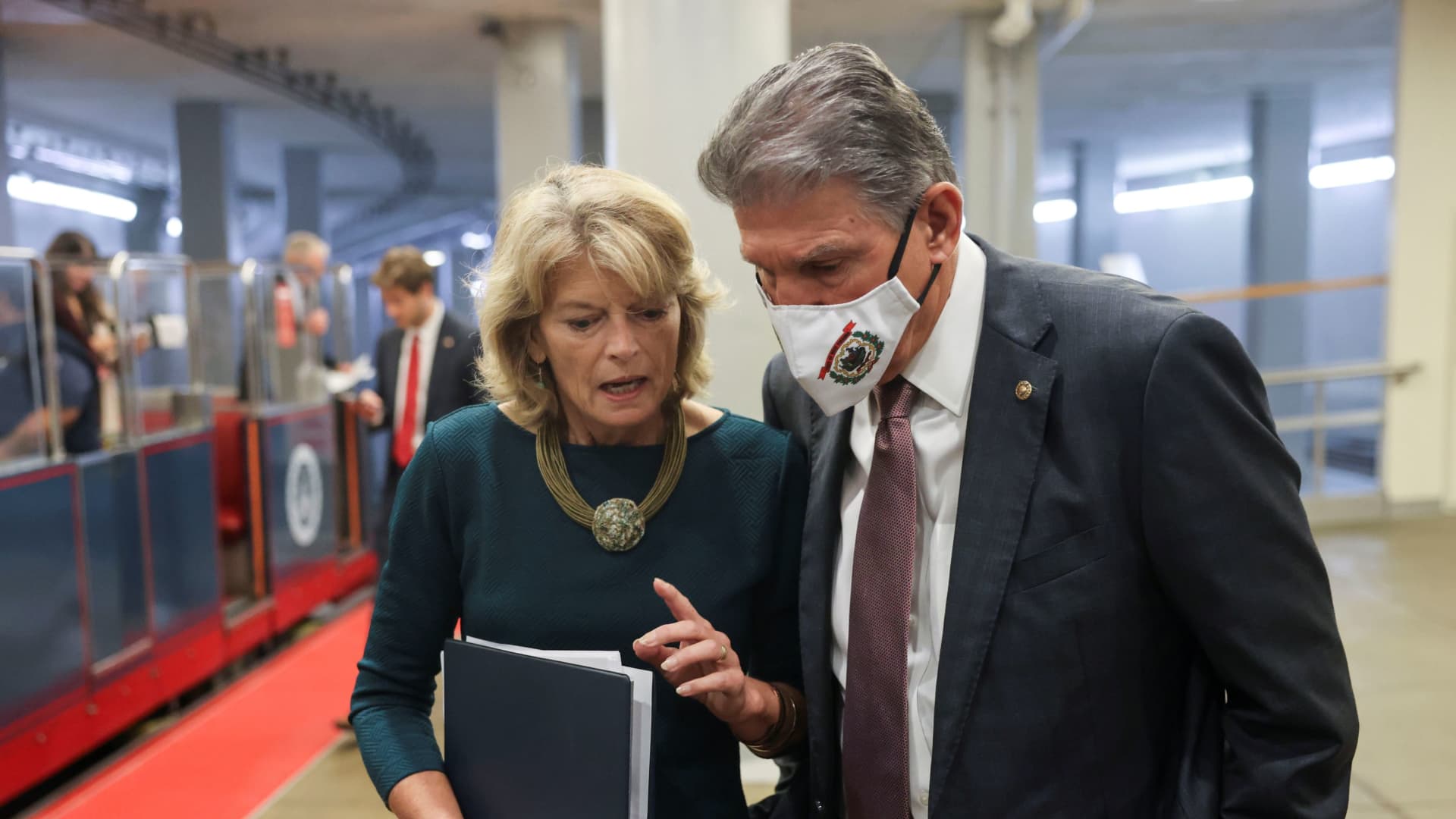
WASHINGTON — A resurgence in Covid cases across the nation could impede progress on key bills in the U.S. Senate this week after moderate Sens. Joe Manchin of West Virginia and Lisa Murkowski separately announced Monday that they both have tested positive for the virus.
Their required isolation could set back Senate Democrats’ efforts to pass several key pieces of legislation ahead of the long August recess starting in two weeks.
“This morning I tested positive for COVID-19,” Manchin, a Democrat, announced in a tweet. “I am fully vaccinated and boosted and am experiencing mild symptoms. I will isolate and follow CDC guidelines as I continue to work remotely to serve West Virginians.”
Several hours later, Murkowski, a Republican, tweeted, “After experiencing flu like symptoms I recently tested positive for COVID-19. I will be following guidance and advice from doctors and will be quarantining at home in Alaska while continuing my work remotely.”
It was unclear Monday exactly what impact Manchin and Murkowski’s required isolation would have on Democrats’ plans to pass several pieces of legislation. One is a bill protecting the right to same-sex marriage that will need support from 10 Republicans in order to make it to President Joe Biden’s desk, where he is expected to sign it. Biden tested positive for Covid last week and is conducting his work while in isolation.
A second bill hanging in the balance is a slimmed-down version of Biden’s “Build Back Better” bill, which would require Manchin’s in-person vote in order to garner 50 votes from Democrats and trigger a tie-breaking vote from Vice President Kamala Harris.
That bill would maintain the currently increased health insurance subsidies for two years, and it would allow Medicare to negotiate with drugmakers on the cost of some prescription drugs.
Manchin and Murkowski are not the only senators currently out with Covid. Democrats Tina Smith of Minnesota and Tom Carper of Delaware announced last week that they have tested positive for the virus.
Unlike members of the House of Representatives, senators are not allowed to vote remotely by proxy. As a consequence, any time a senator is unable to vote in person their party has one less vote. And in a Senate spilt 50-50 between Democrats and Republicans, one vote can mean the difference between legislative success and failure.




